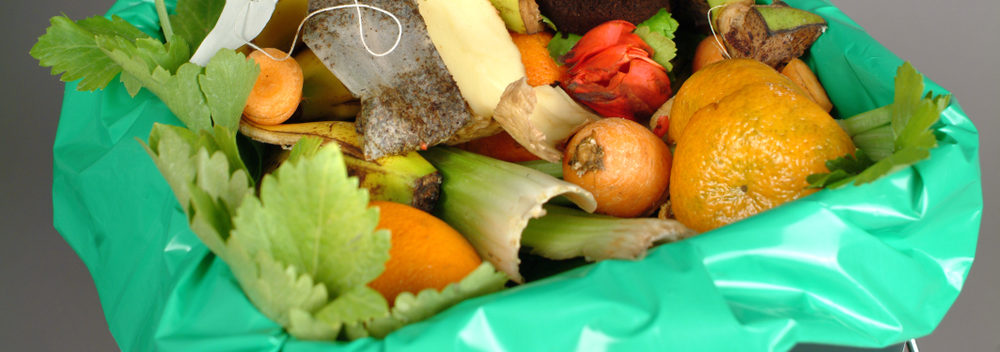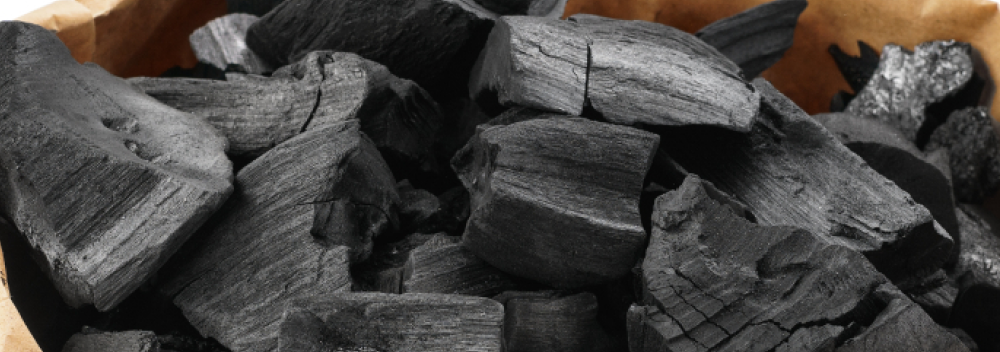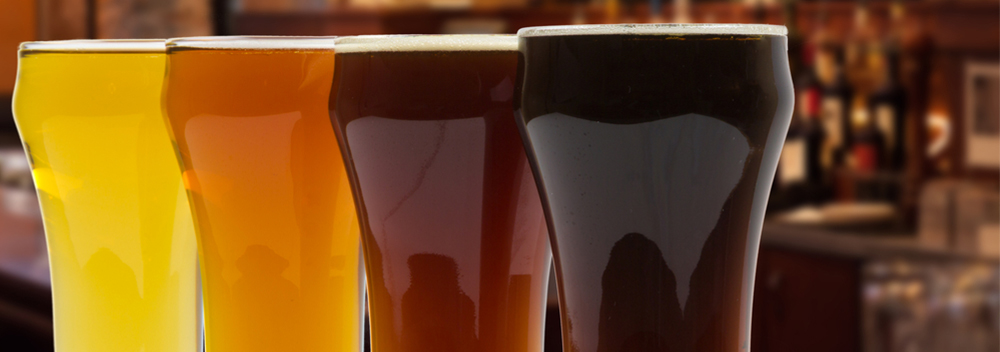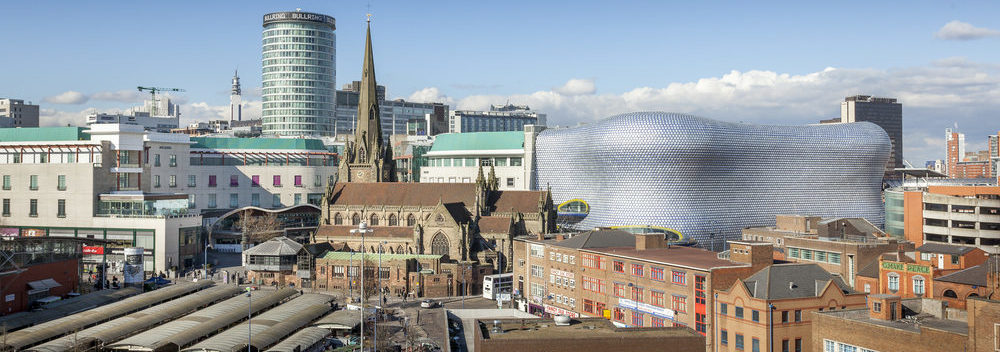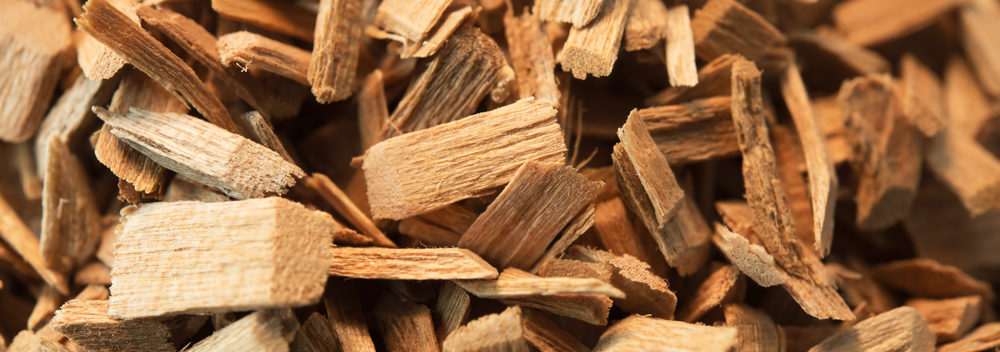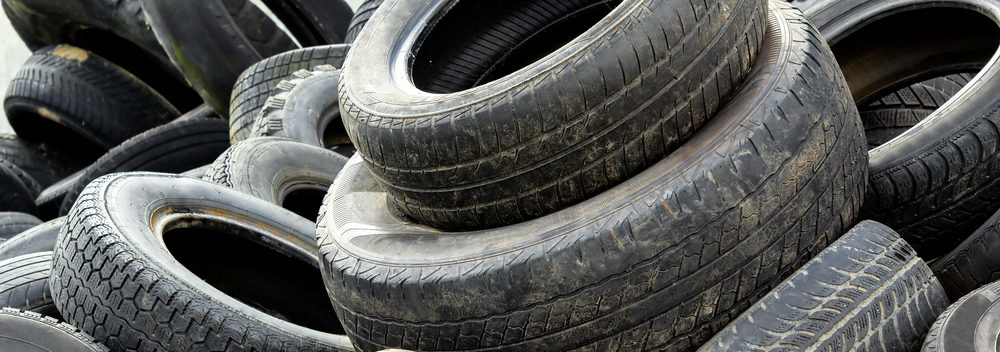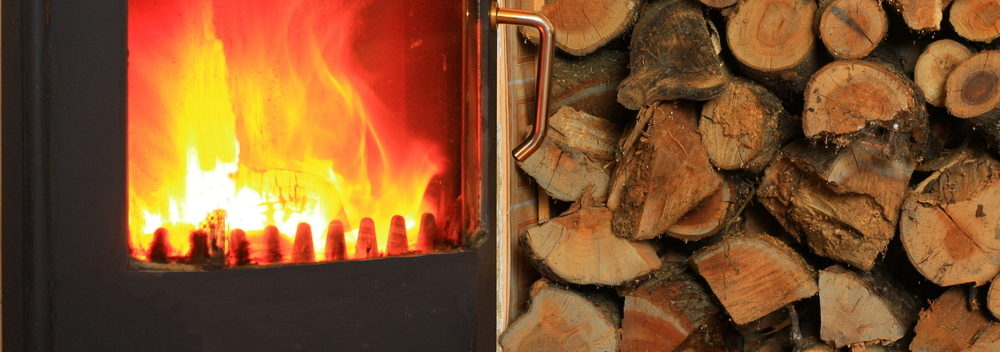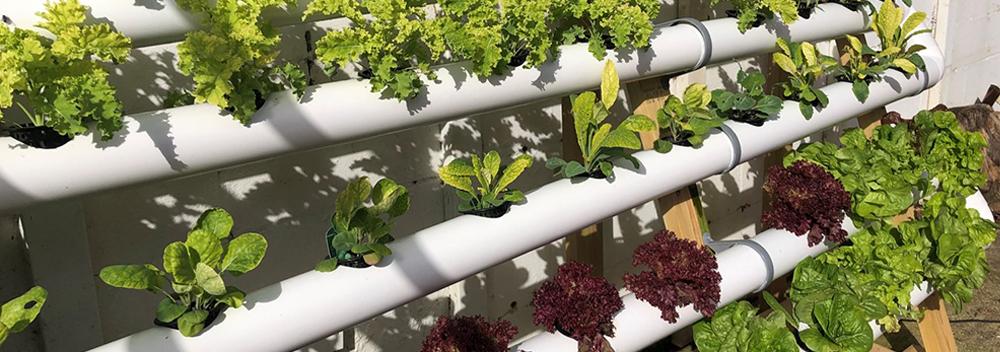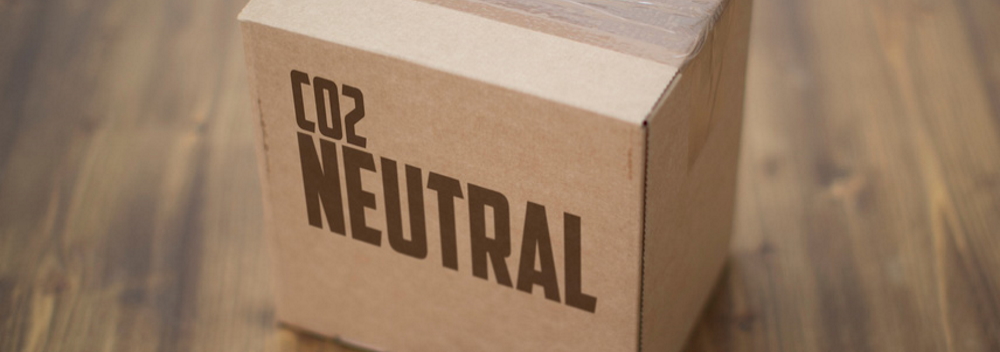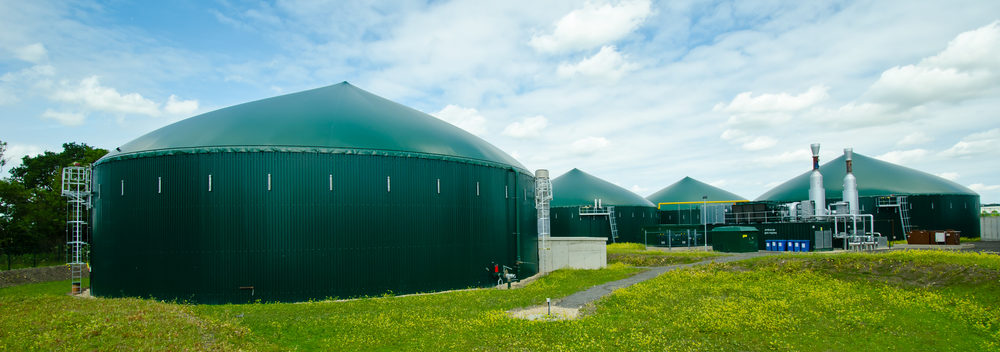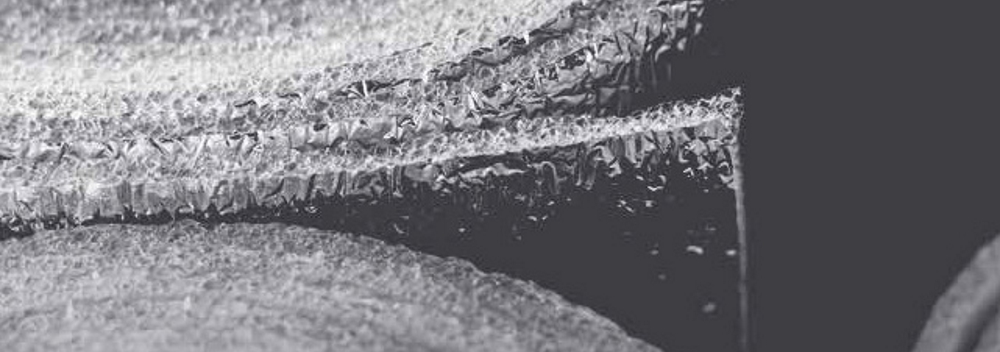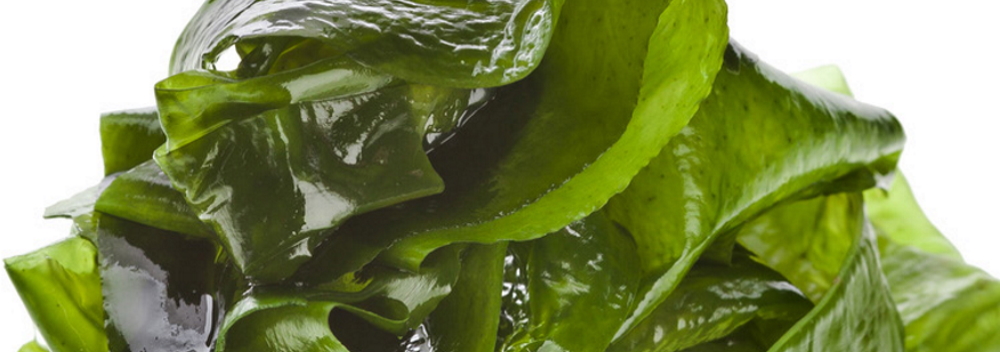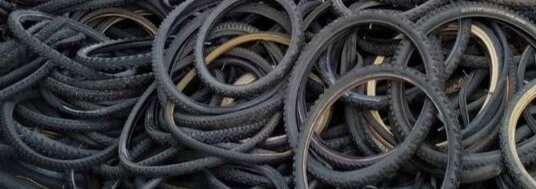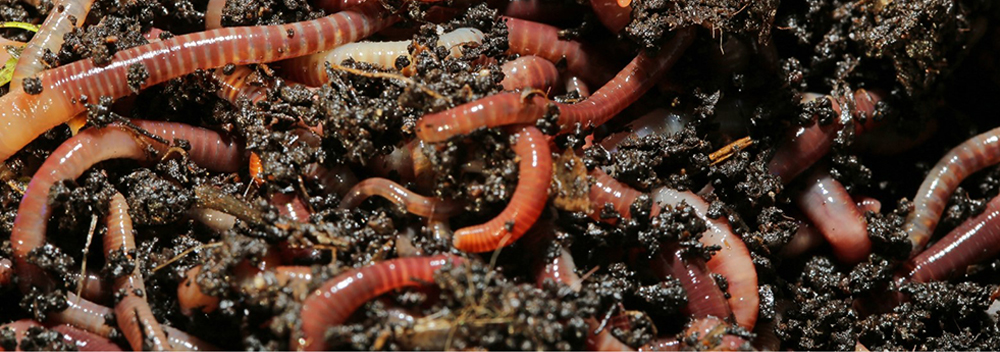The city of Birmingham has over one million trees. That’s equivalent to one per citizen.[1]
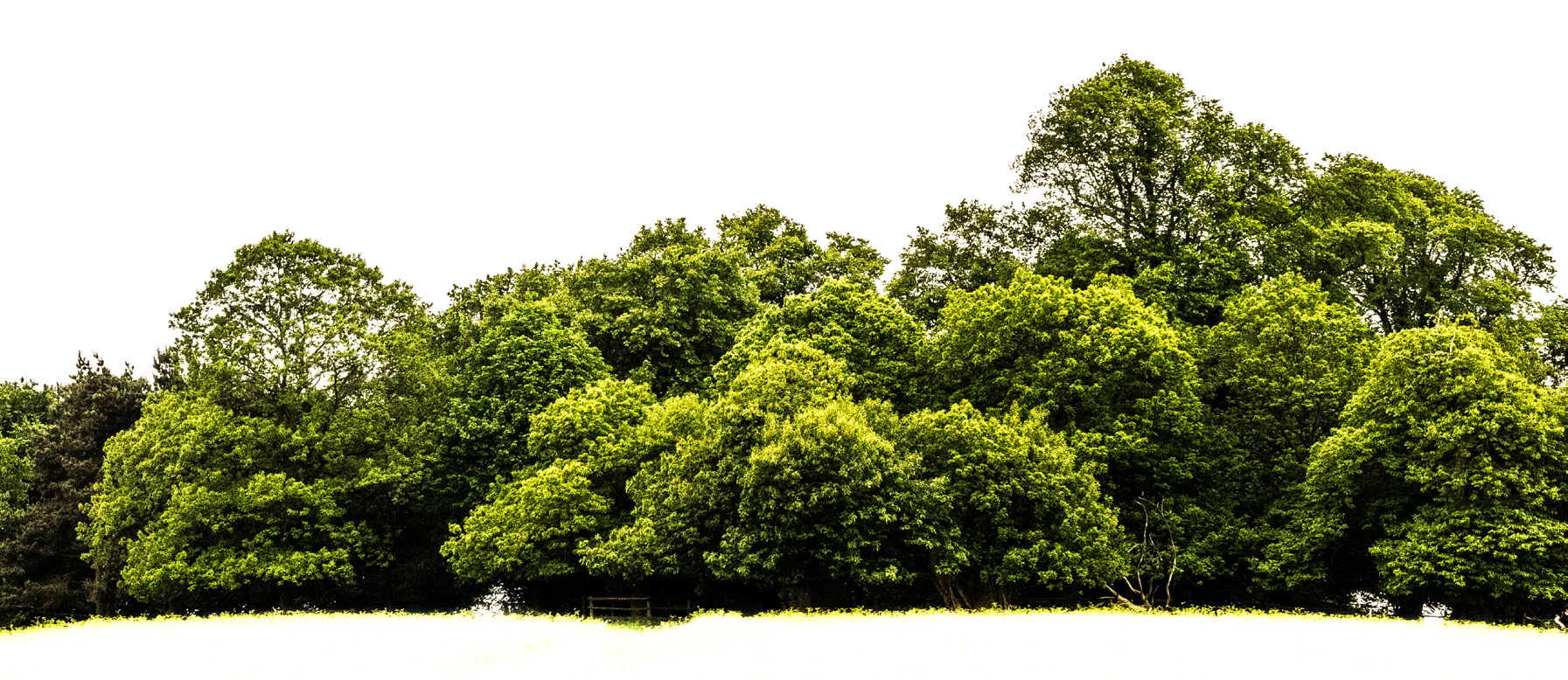
-
Maintenance and pruning of the city’s trees in streets and parks produces between 3000 and 5000 tonnes of wood waste each year.[2]
-
Upcycling this organic waste material can benefit the local environment and economy.
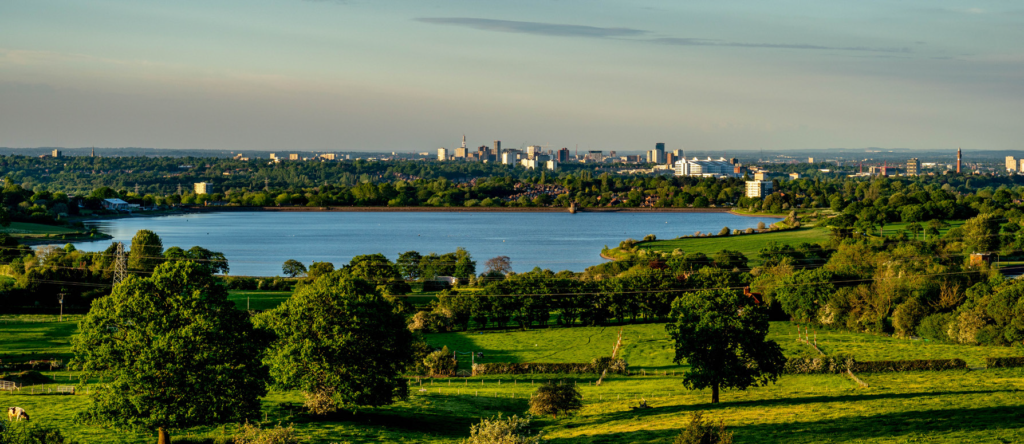
It is well-known that Birmingham is the second-largest metropolitan area and city in the United Kingdom. A fact less widely known about this West Midlands conurbation is that it is incredibly green, with more than 8,000 acres of parks and open spaces – that’s more than any other European city.[3]
There are 1,398 hectares of woodland (equivalent to 2,097 football pitches) within its 591 parks and open spaces. Across the city, tree canopies cover
48.81 square km.[4]
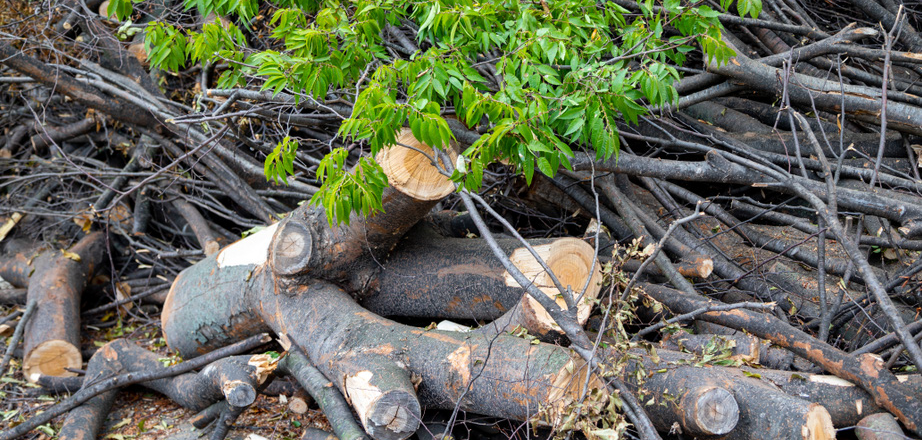
Urban environments generate a multitude of tree and shrub cuttings and prunings from gardens, streets and parks, which can be shredded and upcycled into an innovative, useful product known as ‘biochar’ – a sustainable form of charcoal.
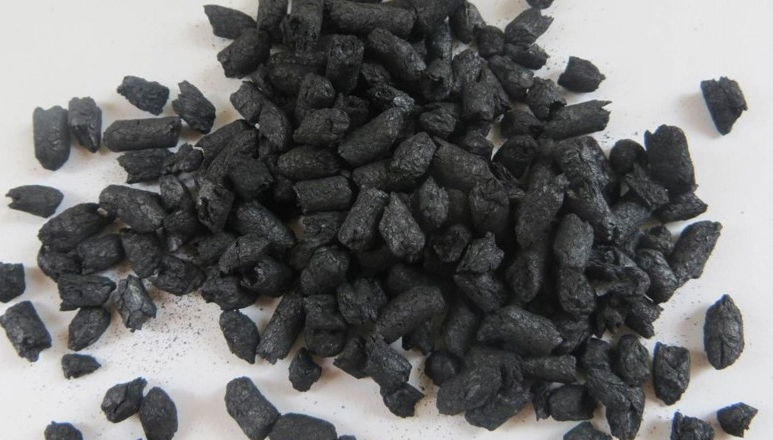
Biochar is created by transforming organic material such as wood waste through a thermal process known as ‘pyrolysis’. This valuable bioproduct offers a wide variety of benefits including carbon capture, water treatment, odour control, industrial applications and soil improvement.
Achieving net zero targets is important for our local environment and economy.
Carbon capture and the recycling of waste materials are two ways of meeting this goal.
Case Study
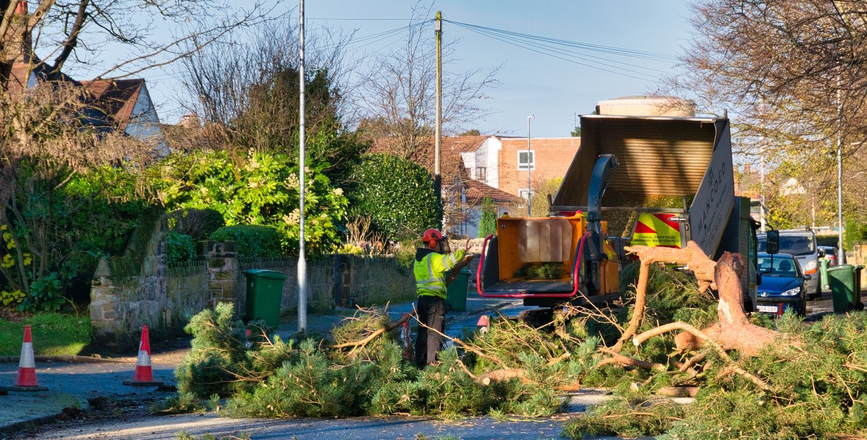
The Energy and Bioproducts Research Institute (EBRI) at Aston University is leading an innovative project to convert urban tree waste, including fallen and diseased wood from streets and parks around Birmingham, into high value and useful bioproducts, such as biochar, and energy such as oils and gases.
This project, called the ‘Urban Biochar and Sustainable Materials Demonstrator’, is funded by the Local Growth Fund (LGF) from the Greater Birmingham and Solihull Local Enterprise Partnership (GBSLEP), as well as the EU European Regional Development Fund (ERDF).
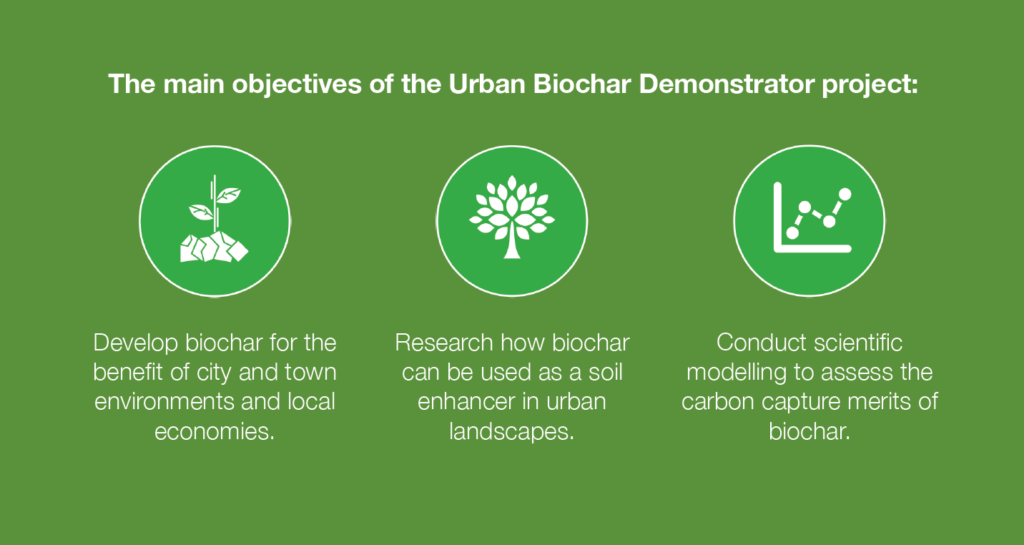
Biochar demonstrator
State-of-the-art equipment is in place at a horticultural nursery on the outskirts of Birmingham which will be producing biochar from urban tree waste from around the local region.
The equipment, installed at Birmingham City Council’s Cofton Nursery near the Lickey Hills will be used to process tree waste generated around the city and Solihull area, using a thermal conversion process to produce useful, valuable byproducts including biochar, gas and oil.
Biochar, made from heating pelletised waste wood or other plant material without oxygen by a process known as ‘pyrolysis’, is a sustainable form of charcoal. Processing unwanted wood material in this way prevents it from rotting down and releasing greenhouse gases, and provides a safe and long-term way of capturing carbon.
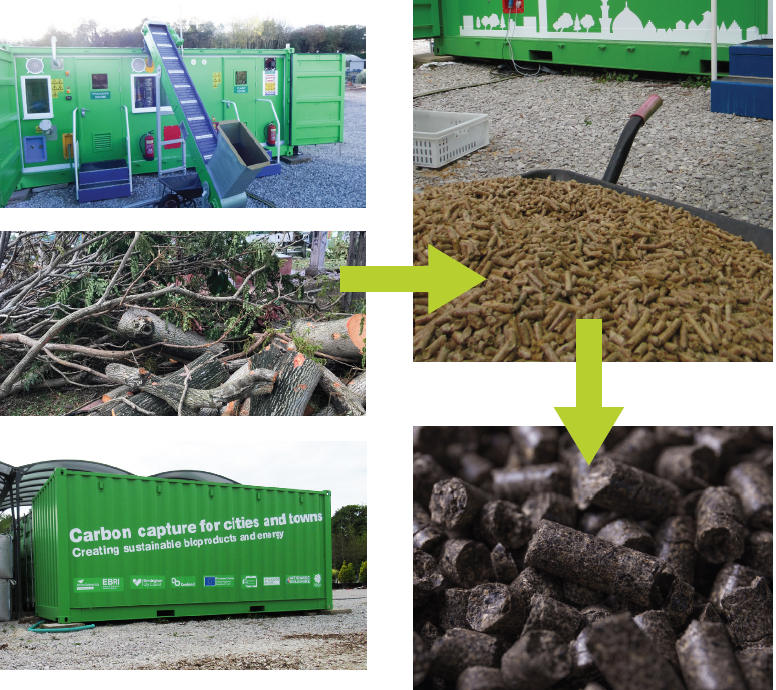
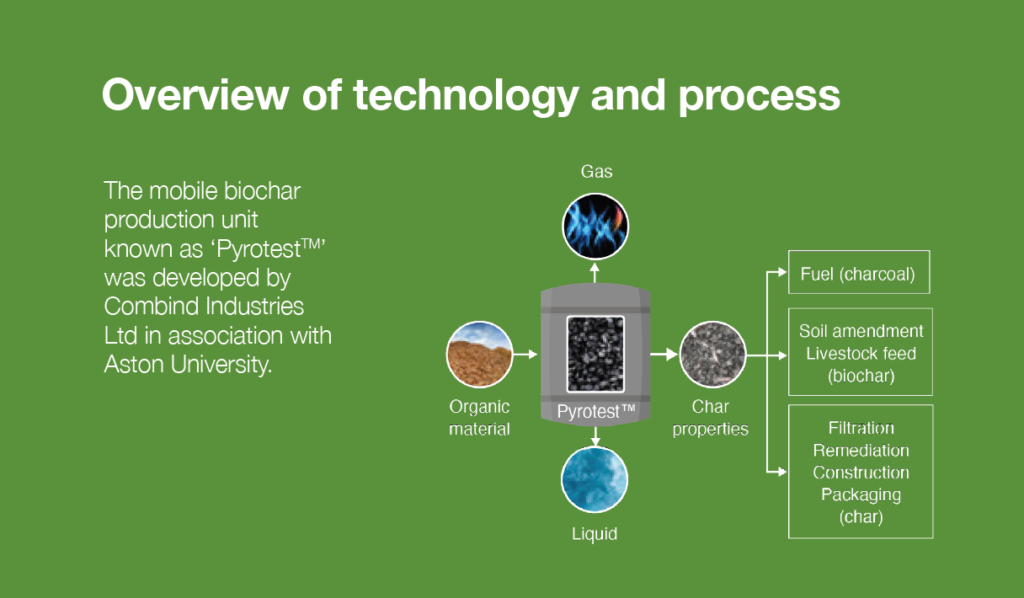
The demonstration unit on display at Cofton consists of two containers:
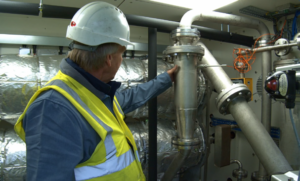 Processor unit
Processor unit
This contains the ‘Comkiln™’ reactor which heats the biomass material in an oxygen-free environment to produce biochar for carbon capture and use in a wide variety of applications as well as producing bio-oil, biogas or syngas that can be used for heating, cooling or as sources of new chemicals.
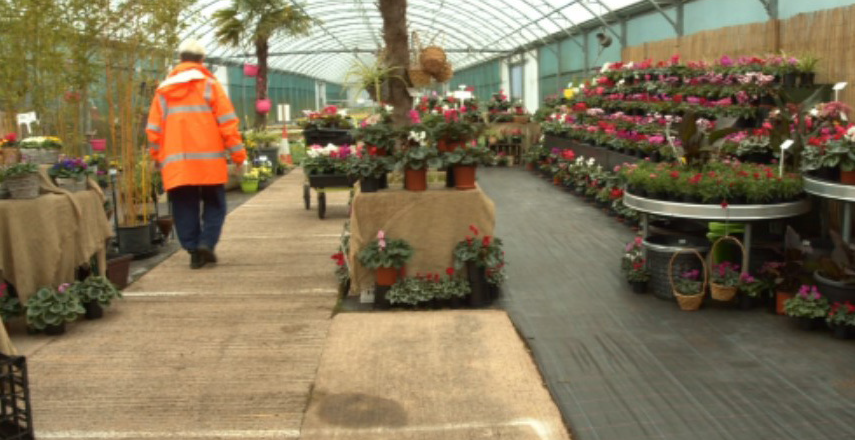
The technology on display will also be used to provide heat and cooling to the nearby horticultural polytunnels owned and run by Birmingham City Council to grow a vast array of plants and flowers for the parks and streets of Birmingham, national flower shows (such as Chelsea), and for purchase by the public.
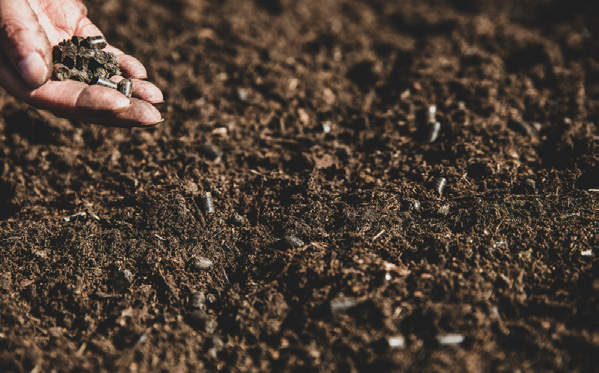
Control room:
This provides a facility for further research into biochar and its use as a soil enhancer in urban environments. Scientific modelling work is also being conducted to assess the carbon capture merits of biochar.
Opportunity for your business to move towards carbon neutrality
Up to ten organisations from in and around Birmingham and Solihull will be given the chance to trial this ground-breaking project to help combat climate change through the use of biochar.
The ten ‘live use’ case trials will be able to demonstrate how biochar can be used for practical purposes, for decarbonisation and for work to improve the land as a soil amender. The businesses can be any size.
“What we are looking for is places that people can use this biochar material. It may be green roofs, or hydroponics, green walls, it could be companies that are doing some sort of property development and want to look to see how they can reduce the greenhouse gas balance impact of their property. Or perhaps your organisation is going through the process of planting trees and wants to be able to use the biochar which will help store carbon in the ground and increase tree growth.”
Tim Miller
Project Leader and Director of Engagement, Energy & Bioproducts Research Institute (EBRI), Aston University.
If you are interested in taking part in this practical trial email [email protected]
Project partners
• Aston University (EBRI)
• Birmingham City Council
• Combind Industries Ltd
• Greater Birmingham and Solihull Local Enterprise Partnership
• Nationwide Boiler Hire Ltd
Project funders
• Greater Birmingham and Solihull Local Enterprise Partnership (Local Growth Fund)
• Aston University
• Combind Industries Ltd
• European Union (European Regional Development Fund)
This project was also supported by:
Barton Firtop Engineering Company Ltd, FuturEnergy Ltd, J & U Services Ltd, RGR Fabricating and Welding Services Ltd.
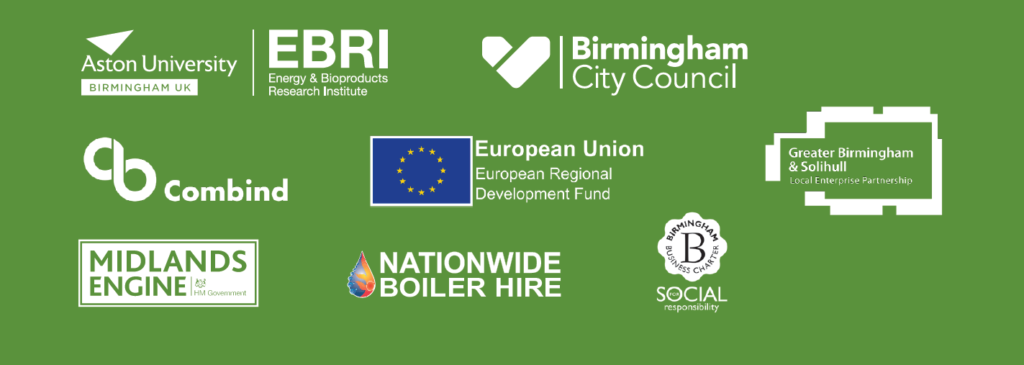
[1] Birmingham City Council https://www.birmingham.gov.uk/news/article/448/birmingham_bids_to_become_a_tree_city_of_the_world
[2] Birmingham City Council, Simon Needle, Principal Arboriculturist / Principal Ecologist
[3] https://www.visitbritain.com/gb/en/five-reasons-race-birmingham#
[4] Birmingham City Council https://www.birmingham.gov.uk/news/article/448/birmingham_bids_to_become_a_tree_city_of_the_world


